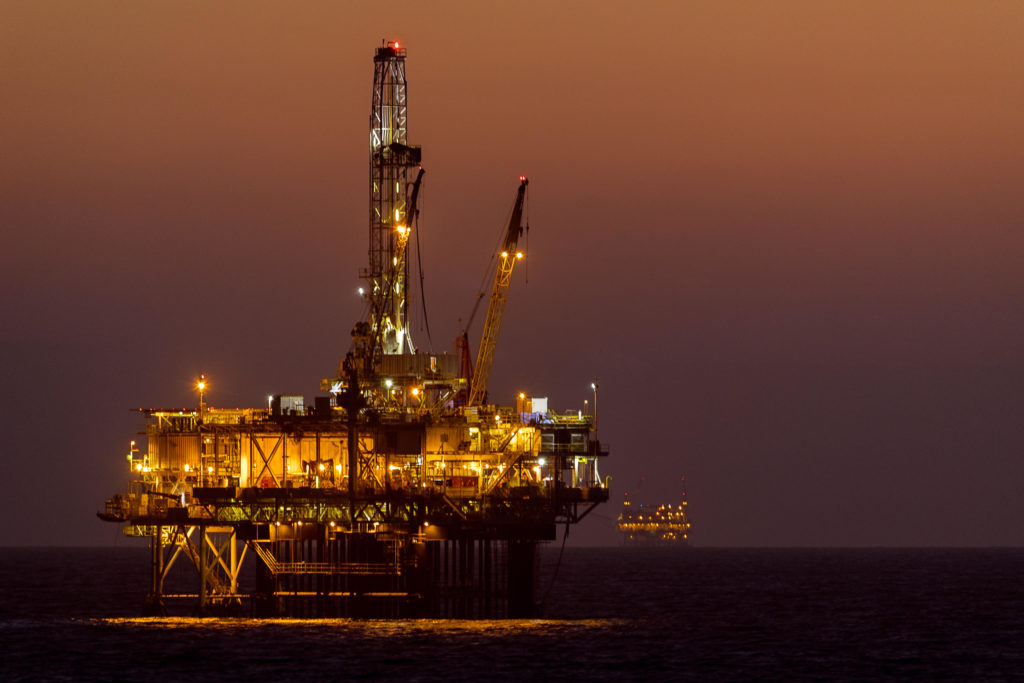BAKU
Norway’s Equinor and Azerbaijan’s state energy firm SOCAR expect substantial oil and gas reserves at Ashrafi-Dan Ulduzu-Aypara (Aypara) field in Azerbaijan’s sector of the Caspian Sea.
Equinor (formerly Statoil) and SOCAR are cooperating in Azerbaijan on the exploration and production in the promising areas of Ashrafi-Dan Ulduzu-Aypara as well as the development of the Karabakh field. The companies also have stakes in the Azeri-Chirag-Gunashli (ACG) oil field development project, the largest oil field block in the country developed by a BP-led international consortium.
In May 2018, SOCAR Karabakh and Equinor signed a Risk Service Agreement on the development of the Karabakh oil field and a production sharing agreement (PSA) on the Aypara. Companies have equal stakes in both joint ventures.
“Seismic surveys carried out on the Aypara structure give reason to believe that there are oil and gas reserves of industrial value,” SOCAR said in a statement after the meeting between the SOCAR President Rovnag Abdullayev and Equinor vice president Al Cook.
The Ashrafi-Dan Ulduzu-Aypara contract area is located 50 kilometres east of Baku, 14 kilometres east of the coastline of the Absheron Peninsula and 7 kilometres east of the Chilov and Pirallahi Islands. The depth of the sea varies from 20 to 225 metres.
The Ashrafi field with reserves of 13 billion cubic meters (bcm) of gas and 17 million tonnes of condensate was discovered in 1999. It is located 100 kilometres east of Baku. The sea depth in the area of the deposit varies from 250 to 450 metres.
In 1997, SOCAR signed a contract for the development of the Ashrafi-Dan-Ulduzu structure block with BP (30 percent, Unocal (25.5 percent), Itochu (20 percent) and Delta HESS (4.5 percent). SOCAR’s share in this project was 20 percent. As part of exploration work at Ashrafi, small hydrocarbon reserves of about 20-40 million tonnes were discovered. The contract lost its legal force on March 7, 2000.
Azerbaijan mainly produces oil on its major ACG oilfields, the largest oil field block in Azerbaijan developed by a BP-led international consortium. The first production sharing agreement for developing the block was signed on September 20, 1994, while a new deal on the joint exploitation of these fields and production sharing was reached on September 14, 2017. The agreement provides for the development of the areas by the end of 2049. The field started production from the Chirag platform in November 1997. Since 1994, around $40 billion of investment has been made into the development of the ACG field. ACG has also delivered about 50 billion cubic metres of associated gas in total.
Apart from BP, the project’s operator, SOCAR and Equinor, members of the consortium are MOL, INPEX, ExxonMobil, TPAO, ITOCHU and ONGC Videsh Limited (OVL).
In September, BP said it had produced four billion barrels of oil on the ACG, marking another important milestone since the project’s beginning in 1994.
ACG currently has eight offshore platforms – six production platforms and two process, gas compression, water injection and utility platforms. The next development project of ACG – the Azeri Central East (ACE) – is currently under construction and is progressing on a plan with the first oil expected in 2023.

